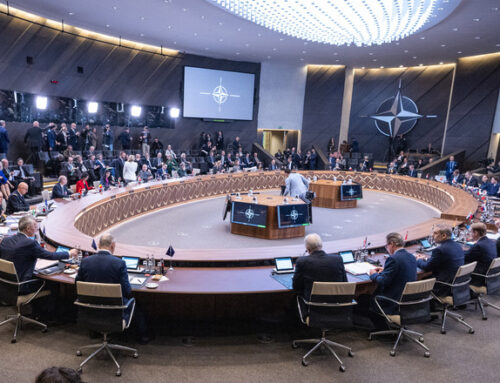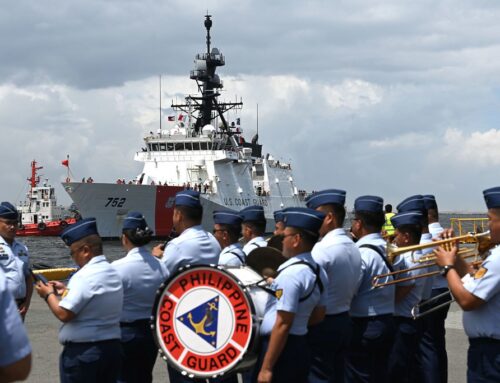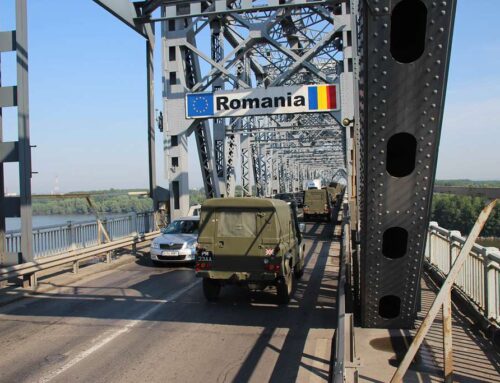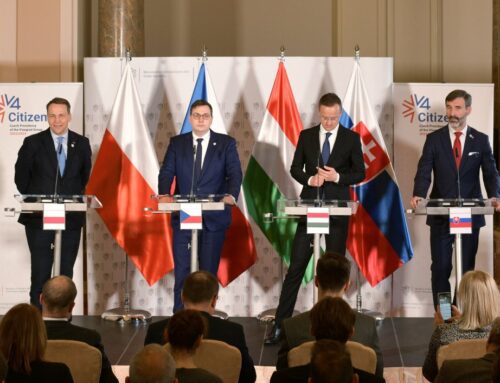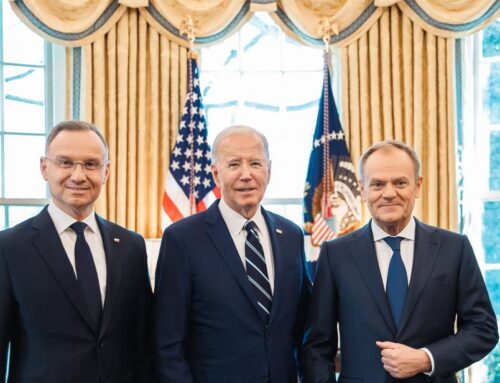vilian copy
Autor foto: Domena publiczna

PULASKI COMMENTARY: Why Russia’s propaganda narratives matter – selected trends and implications (Viliyan Tsvetanov)
1 lutego, 2023
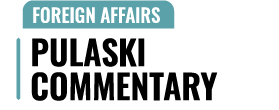

vilian copy
Autor foto: Domena publiczna
PULASKI COMMENTARY: Why Russia’s propaganda narratives matter – selected trends and implications (Viliyan Tsvetanov)
Autor: Viliyan Tsvetanov
Opublikowano: 1 lutego, 2023
Overview
Since the beginning of the Russian invasion on February 24, 2022, Ukraine’s resistance has produced several stunning reversals in the fortunes of war, drastically limiting the territorial and political gains of its adversary. Defeats such as the one in Kherson have forced Moscow to reevaluate its military approach on more than one occasion. However, they have also necessitated an important set of domestic adaptations aimed at ensuring stability in the absence of clear military victory. Such adjustments are evident in one of the Kremlin’s key supporting pillars, namely its propaganda. Examining some of these narrative changes can provide insights into the evolution of the Kremlin’s thinking, its concerns, and Russia’s political landscape.
The Russian information environment: An outline
Media freedoms in Russia are nominally guaranteed by the Constitution, but are in practice subject to a large number of limitations imposed by federal laws.[i] This legislative framework has been growing increasingly restrictive since 2014. Simultaneously, the authority of Roskomnadzor – the state body responsible for the enforcement of mass media laws – was expanded. Current legislation prescribes Roskomnadzor oversight of websites and blogs[ii] and includes laws against “disrespect for the authorities” and “fake news.”[iii] Strict punishments can be imposed on individual citizens for the violation of these laws. However, their legal wording is imprecise, which allows authorities to interpret them as needed. This practically puts the state in direct control of Russia’s entire information space, including online posts and comments.
Thus, Russia’s information space can be subdivided into two spheres; an inner one composed of state media and an outer one composed of private media and individuals. The former is controlled directly, whereas the latter is controlled through legislation. Ultimately, no entity or individual can publicly spread information without the state’s permission. And while the narratives in the two spheres differ, there are two fundamental similarities: Vladimir Putin is not criticized and the need for war is not questioned.
The state-owned TASS, Rossiyskaya Gazeta, RT, and RIA form the Kremlin’s informational backbone and almost never deviate from the statements of high-ranking officials. Their coverage of the war mostly mirrors assurances by the Ministry of Defense (MoD) that Russian forces are winning on the battlefield, but have been slowed down by NATO’s support for Ukraine.
The outer sphere features more varied views. This part of Russia’s information space consists of private media and blogs. The war in Ukraine has also underlined the prominence of ‘milbloggers’: war correspondents and experts who utilise social media (Telegram, VKontakte) to reach large audiences within Russia. They often hold more extreme nationalist views and are generally more critical of the MoD and high-ranking officers, who are seen as the incompetent managers of an otherwise vital and just war effort.
Trend 1: “Good Tsar, bad Boyars” , or milbloggers as a Kremlin instrument
Russia’s defeat in the Kharkiv region and the subsequent declaration of military mobilisation caused a major informational shift. Firstly, criticism against the management of the war effort intensified in the outer sphere, reaching previously unprecedented levels.[iv] Secondly, mobilisation was a de facto admission of failure by the Kremlin, bringing the war much closer to ordinary Russians and necessitating a search for guilty parties. The already harsh criticism of private media and milbloggers against specific generals was now accompanied by exasperation at the institutions responsible for conducting the mobilisation. The inadequacies of equipment, facilities and procedures were angrily pointed out and local authorities were blamed.[v] This created a precedent, as some of the discontent seeped even into the sanctum of state media.[vi]
However, all parties are still steering clear of directing blame towards Vladimir Putin, who is now being distanced from the Kherson retreat. This is a drastic change for a President who publically and directly ordered the Azovstal plant to be besieged in April.[vii] Instead, General Surovikin and Defense Minister Shoigu announced the decision[viii], signaling that the Kremlin is concerned about discontent and is seeking to direct it towards more disposable figures, namely high ranking officers and MoD officials. This is reinforced by the fact that Putin has not silenced milblogger criticism against the MoD despite having all the tools to do so. Rather, he has expressed support for their work, protected them from MoD censorship, met them in person and handed them government positions.[ix] Thus, an unwritten agreement emerges; milbloggers are awarded influence, as long as they continue to redirect frustration away from the Kremlin via the “good Tsar, bad Boyars” narrative.
Nonetheless, this approach also entails risks. Firstly, it may severely undermine the authority of Russia’s MoD, damaging morale and the public’s trust in Moscow’s military capabilities. Secondly, consistently blaming MoD figures will ultimately necessitate their removal from office. If military failures continue in the context of frequent commander reshuffling[x], it will become harder to deflect responsibility away from the Kremlin. Finally, eroding the military’s authority justifies political interventions by autonomous actors like Wagner Group’s Yevgeny Prigozhin and Chechnya’s Ramzan Kadyrov, ostensibly to rescue Russia from its incompetent generals. Indeed, the two used their prominence to voice united criticism against Major-General Alexander Lapin[xi], who was subsequently removed from his position. Additionally, Sergey Surovikin, who has received praise from both, was recently handed overall command .[xii] The influence of Prigozhin and Kadyrov – who head de facto private armies and often criticize the MoD – highlights the inability of the Kremlin to achieve victory through conventional means and dangerously feudalises Russia’s war effort.
Trend 2: Bitterer war, softer war goals
The Kremlin seems to be concerned about the war’s long-term sustainability, as the “short war” narrative[xiii] is now being replaced by a “long war” narrative. The internal responsibility for the protraction of the war is directed by milbloggers towards the MoD, while external responsibility is shifted to NATO by both private and state media. Ukraine is increasingly described as a hopelessly radicalised Western puppet.[xiv] Statements of figures like Dmitri Medvedev and Kadyrov are becoming more radical, referring to “Satanism” and an existential civilizational struggle against the entire West.[xv] At the same time, NATO countries are portrayed as being in deep crisis, implying that Russia could outlast their support for Ukraine through a war of attrition.[xvi] And while rhetorical aggressiveness increases, state media and officials appear to be softening Russia’s war aims; the Kremlin now claims that toppling Ukraine’s government is not among its objectives.[xvii] The message to audiences seems clear: expect less, but be willing to sacrifice more to achieve it.
Implications
It must be underlined that the Kremlin’s control over the information space is strong, but not absolute. The enforcement of strict information laws on a large population requires government bodies with immense institutional capacity. It is unlikely that Roskomnadzor, despite its strengthened authority, is capable of fully censoring the information sphere while remaining in perfect unison with the political leadership’s thinking. Propaganda can offer valuable insights, but should be used as part of a larger toolset for a more precise picture of the Kremlin’s mindset. Nevertheless, the narratives described above are consistent and evident enough to justify the drawing of some useful, if potentially flawed conclusions.
First, recent defeats have put Russia’s MoD in the firing line. Its role as a scapegoat is being reinforced by an apparent alliance of convenience between Vladimir Putin and milblogger circles. However, the waning of the MoD’s influence benefits relatively independent figures like Ramzan Kadyrov and Yevgeny Prigozhin. The feudalization of Russia’s war effort may cause an increase in war crimes and even greater unpredictability, as these forces are not clearly subordinated to formal command structures. Therefore, international bodies such as the UN and ICC should take special care to monitor parts of the front held by Chechen and Wagner forces.
Second, Moscow appears to be building informational support for a war of attrition. The successful execution of such a strategy would require the Kremlin to raise the real and perceived costs of supporting Ukraine. In order to maximize real costs, Russia may continue to attack civilian infrastructure, deteriorating the humanitarian crisis in Ukraine, crippling its defensive efforts and making it more dependent on Western aid. To maximize perceived costs, Russian disinformation campaigns in countries with pro-Ukrainian governments may be intensified, exploiting social and political vulnerabilities in order to weaken the consensus regarding the conflict. The West would do well to prepare for such a two-pronged escalation. Ukraine’s needs for both military and humanitarian aid will likely peak this winter; satisfying them may expose terminal cracks in Russia’s façade of indomitability.
Author: Viliyan Tsvetanov, external contributor
[i] Sergei Karpukhin, Media regulation in Russia: A landscape analysis of laws and trends (The Thomson Reuters Foundation, 2016).
[ii] “Federal Law No. 97-FZ (Bloggers Law), Wilmap. Accessed December 12, 2022. https://wilmap.stanford.edu/entries/federal-law-no-97-fz-bloggers-law.
[iii] “Federal Law No. 30-FZ ‘on Amendments to the Federal Law “on Information, Information Technologies and Information Protection”’ March 18, 2019 | Wilmap.” n.d. Wilmap.stanford.edu. Accessed December 12, 2022. https://wilmap.stanford.edu/entries/federal-law-no-30-fz-amendments-federal-law-information-information-technologies-and
“Federal Law No. 31-FZ, on Amending the Article 15.3 of the Federal Law ‘on Information, Information Technologies, and Information Protection’, March 18, 2019 | Wilmap.” n.d. Wilmap.stanford.edu. Accessed December 12, 2022. https://wilmap.stanford.edu/entries/federal-law-no-31-fz-amending-article-153-federal-law-information-information-technologies
[iv] “Кирилл Стремоусов.” n.d. Telegram. Accessed December 12, 2022. https://t.me/Stremousov_Kirill/457
“Kadyrov_95.” n.d. Telegram. https://t.me/RKadyrov_95/2911
“Стрелков Игорь Иванович.” n.d. Telegram. Accessed December 12, 2022. https://t.me/strelkovii/3210
[v] Mariya Kvashnina, „‘They took them in well, immediately gave them equipment’. Mobilized Perm man’s sister talks about training ground conditions”, 59.ru, 26.10.2022. https://59.ru/text/gorod/2022/10/26/71766842/
“Симоньян: брешь несправедливости должна быть залатана.” n.d. Vesti.ru. Accessed December 12, 2022. https://www.vesti.ru/article/2958313
[vi] Dariya Bahireva, “Глава комитета ГД обвинил Минобороны в отсутствии реакции на критику россиян.” n.d. Ura.news, 07.10.2022. Accessed December 12, 2022. https://ura.news/news/1052592947
“Матвиенко призвала губернаторов провести мобилизацию в соответствии с критериями призыва.” n.d. TACC, 24.09.2022. Accessed December 12, 2022. https://tass.ru/politika/15860157
Julia Davis, Twitter, 02.10.2022. Accessed December 12, 2022: https://twitter.com/JuliaDavisNews/status/1576331334317879297
Julia Davis, Twitter, 02.10.2022. Accessed December 12, 2022: https://twitter.com/JuliaDavisNews/status/1576410989104627712
“Российский генерал призвал прекратить врать о ходе спецоперации.” n.d. Lenta.RU. Accessed December 12, 2022. https://lenta.ru/news/2022/10/05/kartapolov/
[vii] “Путин приказал отменить штурм ‘Азовстали’ – ТАСС.” n.d. TACC, 21.04.2022. Accessed December 12, 2022. https://tass.ru/politika/14433663
[viii] “Шойгу и Суровикин объявили об отводе войск из Херсона и с правого берега Днепра.” 2022. Коммерсантъ, 09.11.2022. Accessed December 12, 2022. https://www.kommersant.ru/doc/5653512?ysclid=latli1byde708337266
[ix] Mariya Shustrova, “Путин утвердил новый состав СПЧ. В него вошли военкор и депутат ДНР.” n.d. Газета.Ru, 17.11.2022. Accessed December 12, 2022. https://www.gazeta.ru/politics/2022/11/17/15798235.shtml
“Путин пообещал поддержать блогеров, рассказывающих правду об истории.” 2022. РЕН ТВ, 20.04.2022. Accessed December 12, 2022: https://ren.tv/news/v-rossii/965853-putin-poobeshchal-podderzhat-bloegrov-rasskazyvaiushchikh-pravdu-ob-istorii
“Журналисты, занимающиеся экономикой и СВО, смогут задать Путину вопросы на встрече на ПМЭФ – ТАСС.” n.d. TACC, 14.06.2022. Accessed December 12, 2022: https://tass.ru/politika/14901453?utm_source=google.com&utm_medium=organic&utm_campaign=google.com&utm_referrer=google.com
Nikolay Filippov, “Симоньян заявила, что Путин встретился с военкорами.” n.d. Www.mk.ru, 20.06.2022. Accessed December 12, 2022. https://www.mk.ru/politics/2022/06/20/simonyan-zayavila-chto-putin-vstretilsya-s-voenkorami.html
“Readovka.” n.d. Telegram, 15.11.2022. Accessed December 12, 2022. https://t.me/readovkanews/46877
“Рыбарь.” n.d. Telegram, 10.07.2022. Accessed December 12, 2022. https://t.me/rybar/35245
[x] Viktoriya Polyakova, Petr Kanaev, “В Восточном военном округе сменился командующий.” n.d. РБК, 07.10.2022. Accessed December 12, 2022. https://www.rbc.ru/politics/07/10/2022/633fd1469a794733591700b5
Kiril Sokolov, Petr Kanaev, “В Западном военном округе сменился командующий.” n.d. РБК, 03.10.2022. Accessed December 12, 2022. https://www.rbc.ru/politics/03/10/2022/63398ef39a794781bd17a8ec
[xi] “Kadyrov_95.” n.d. Telegram, 01.10.2022. https://t.me/RKadyrov_95/2911
“Пресс-служба Пригожина.” n.d. Telegram, 12.11.2022. Accessed December 12, 2022. https://t.me/concordgroup_official/22
[xii] “Пресс-служба Пригожина.” n.d. Telegram, 12.11.2022. Accessed December 12, 2022. https://t.me/concordgroup_official/22
Dariya Dmitrova, “Кадыров: назначение Суровикина исправит ситуацию в зоне СВО – Газета.Ru | Новости.” n.d. Газета.Ru, 08.10.2022. Accessed December 12, 2022. https://www.gazeta.ru/army/news/2022/10/08/18752005.shtml
[xiii] Elena Anosova, “Когда всё это закончится? Военные эксперты — о ситуации на Украине.” 2022. НГС24 – новости Красноярска. 26.02.2022. Accessed December 12, 2022 https://ngs24.ru/text/politics/2022/02/26/70471739/
Alena Vargina, “В Кремле оценили ход спецоперации на Украине.” n.d. Ura.news, 23.03.2022. Accessed December 12, 2022. https://ura.news/news/1052540406
Ekaterina Lazareva, “Путин показал, что приблизит завершение спецоперации на Украине.” n.d. Ura.news, 12.03.2022. Accessed December 12, 2022. https://ura.news/articles/1036284147
Egor Chekletsov, “Медведев рассказал, когда закончится спецоперация на Украине.” n.d. Ura.news, 25.03.2022. Accessed December 12, 2022. https://ura.news/news/1052541019
[xiv] Aleksandr Sitnikov, “Херсон, бандеровцы лютуют: СБУ хватает всех подряд и казнит – Свободная Пресса,. Svpressa.ru. 15.11.2022. https://svpressa.ru/war21/article/352310/?utm_source=smi2
“Небензя назвал Украину западным полигоном для испытания оружия.” Известия. 17.11.2022. https://iz.ru/1426803/2022-11-17/nebenzia-nazval-ukrainu-zapadnym-poligonom-dlia-ispytaniia-oruzhiia
Новости, Р. И. А. 2022. “Патрушев: Украина превратилась в мировой центр ультраправого экстремизма.” РИА Новости. 2022. https://ria.ru/20221103/ukraina-1828863804.html
[xv] “Дмитрий Медведев.” n.d. Telegram, 04.11.2022. Accessed December 12, 2022. https://t.me/medvedev_telegram/206.
“Kadyrov_95.” n.d. Telegram, 15.11.2022. Accessed December 12, 2022. https://t.me/RKadyrov_95/3101
Новости, Р. И. А. 2022. “ЕС готовится к войне с Россией.” РИА Новости. 2022. https://ria.ru/20221114/es-1831196253.html
[xvi] “Штайнмайер заявил о глубочайшем кризисе в Германии.” n.d. TACC, 28.10.2022. Accessed December 12, 2022. https://tass.ru/mezhdunarodnaya-panorama/16184821
Valeria Konkina, “Spiegel: немецкие военные массово увольняются со службы из-за ситуации на Украине.” n.d., 27.10.2022. Федеральное агентство новостей No.1. Accessed December 12, 2022. https://riafan.ru/23719272-spiegel_nemetskie_voennie_massovo_uvol_nyayutsya_so_sluzhbi_iz_za_situatsii_na_ukraine?utm_medium=referral&utm_source=infox.sg&utm_campaign=exchange&t=teaser
Grigoriy Egorov, “Кедми: США и Европа даже не понимают, какая катастрофа их ждет.” n.d. ФБА “Экономика Сегодня.”, 10.10.2022. Accessed December 12, 2022. https://rueconomics.ru/23689985-kedmi_ssha_i_evropa_dazhe_ne_ponimayut_kakaya_katastrofa_ih_zhdet?utm_medium=referral&utm_source=infox.sg&utm_campaign=exchange
“Известный политолог рассказал, когда Запад может отказать Украине в помощи.” n.d. Expert.ru, 27.10.2022. Accessed December 12, 2022. https://expert.ru/2022/10/27/izvestniy-politolog-rasskazal-kogda-zapad-mozhet-otkazat-ukraine-v-pomoschi/?utm_source=24smi&utm_medium=referral&utm_term=17274&utm_content=4503666&utm_campaign=20542
Новости, Р. И. А. 2022. “‘Пентагон кое-чего опасается’. Почему НАТО сокращает поддержку Украины.” РИА Новости. 2022. https://ria.ru/20221115/pomosch-1831368375.html
[xvii] “Песков заявил, что смена власти в Киеве не является целью спецоперации.” n.d. TACC, 21.11.2022. Accessed December 12, 2022. https://tass.ru/politika/16384599

